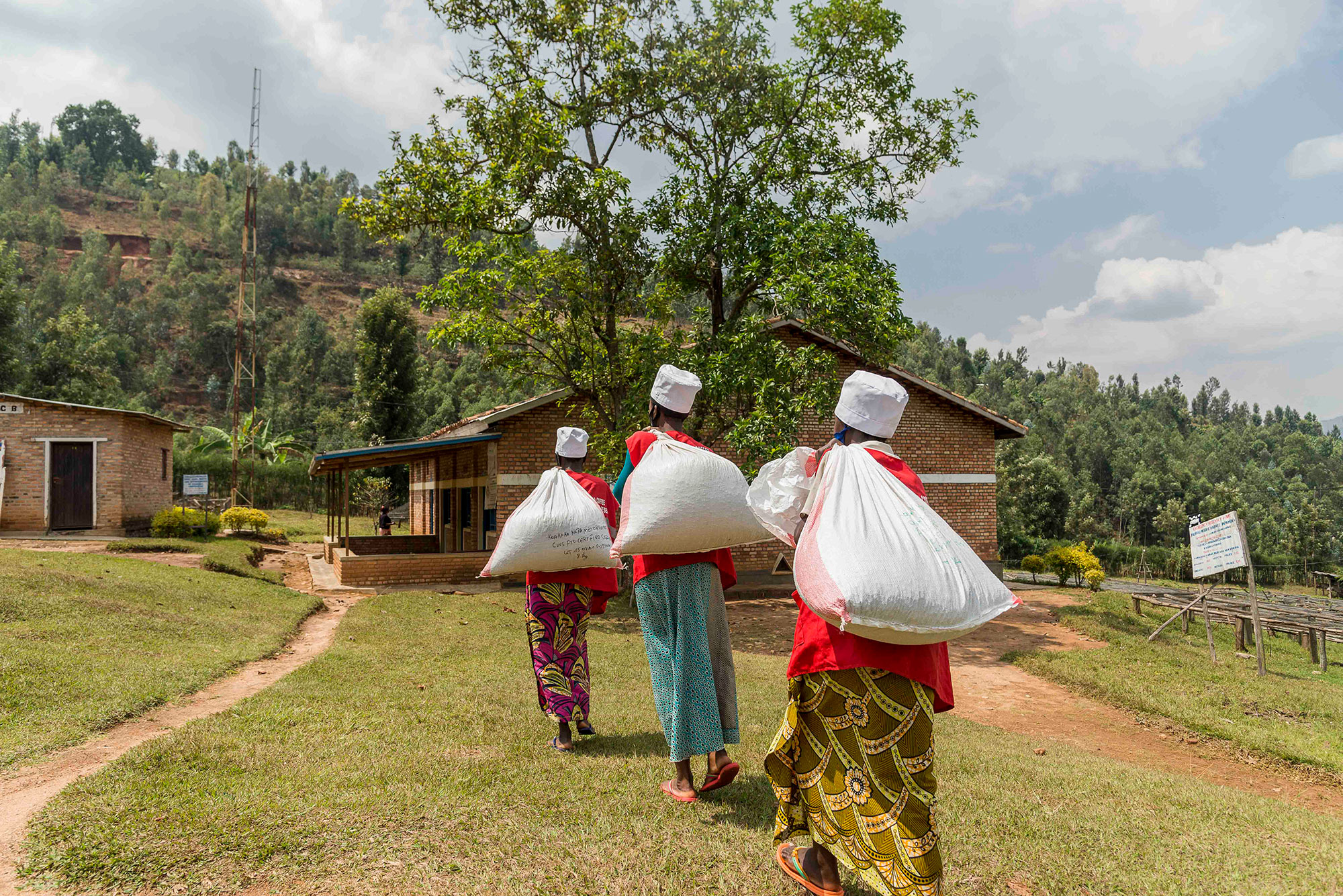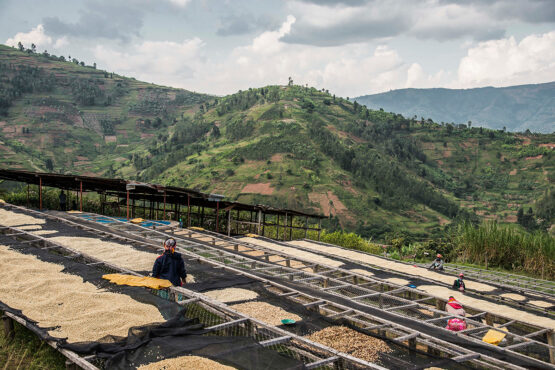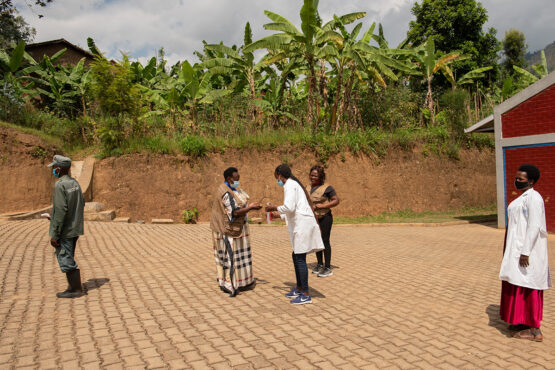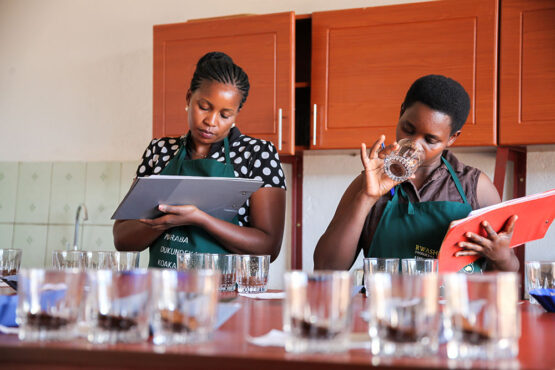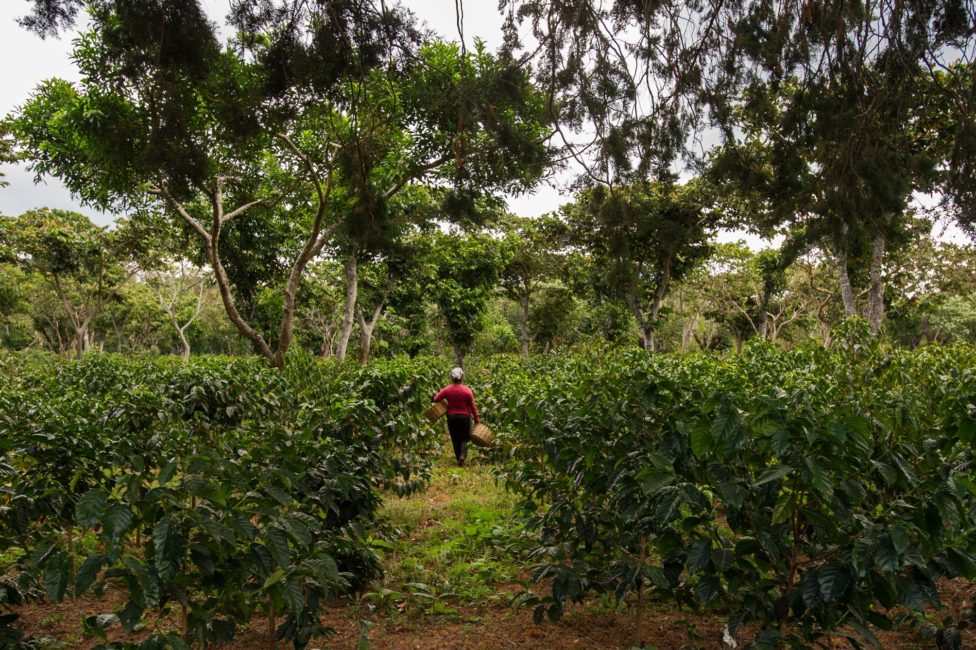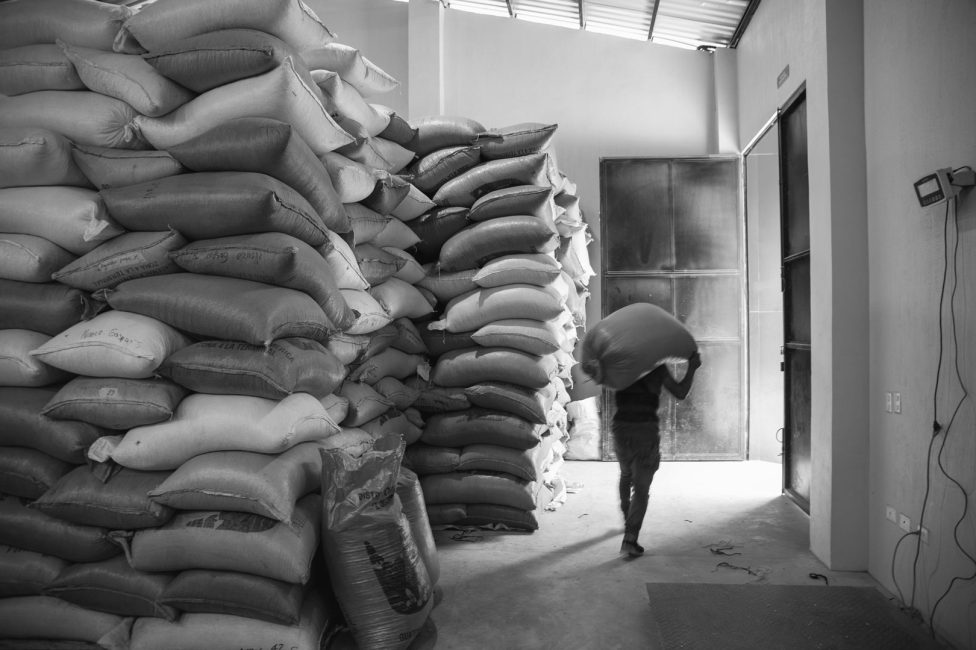Rwanda End-of-Harvest Report
Published 2 November 2021
The Covid-19 pandemic, and the measures that governments around the world have put in place to keep our communities safe, have inevitably changed the way we live. This is especially true in coffee-growing communities, where manual labour and long, complex lines of transport are essential to everyday operations.
Since the onset of the pandemic, we have been in close and constant communication with all our supply partners, in an effort to stay as connected as possible. With international travel out of the picture, we have settled for emails, group chats and video calls, to collect and record the information that we would usually gather during our annual buying trips. Inevitably, these conversations have led to a question we’re all familiar with by now: How has the Covid-19 pandemic affected you this past year? In Rwanda, the answer to this is complex, but the outlook has left us feeling optimistic.
Without a doubt, Rwanda’s Covid-19 response is a story of success. Thanks to the hard, preventative work of community health workers and contact-tracing teams across the country, cases have remained low and the country’s mortality rate is one the lowest in the continent. Though our supply partners have all expressed relief and gratitude for the health measures that have been implemented, these efforts have caused considerable challenges for this year’s coffee season – especially after the devastating effects of buyer uncertainty and hesitancy in 2020, when the National Bank of Rwanda reported a 34% drop in coffee exports. Our suppliers have had to show extraordinary agility, ingenuity, and strength to overcome these obstacles and continue to produce and market their incredible coffees.
The reasons for these challenges are straightforward. The cost of producing coffee rose this year, largely due to the expense of equipping all workspaces with the required Covid-related protective measures. All our partners work with hundreds of farmers across several washing stations and keeping everyone safe required a substantial investment on their behalf. This sudden increase in costs caused many cooperatives to experience significant cashflow limitations. Securing essential loans also became a challenge early in the harvest, as Ernest Nshimyimana, the Managing Director of Dukunde Kawa Cooperative, explains: “Getting loans for the coffee season’s financing experienced delays due to the limited number of staff working shifts at banks, thus affecting our purchasing power for coffee cherries.”
For private companies like Buf Coffee, this weakened financial position was particularly difficult, due to the structure of the local coffee cherry market. Whereas cooperatives collect annual membership fees and receive cherry from invested farmer members, private companies must buy fresh cherries from independent growers, and arrange for their collection. Each season, the minimum price per kg of cherries is set by Rwanda’s National Agricultural Export Development Board (NAEB) to protect farmers from being exploited (this year, for example, it rose by 15%), but NAEB doesn’t limit how high prices can go. In a normal year, competition for cherries is heated; but on a Covid-19 year, things got downright fierce.
Prices in 2021 surged by 50% above NAEDB’s set price, and many domestic companies were muscled out of the market by multinational exporters who were scrambling to fulfill sizable contracts. Our friend Innocent Ntakirutimana, Logistics and Operations Manager at Buf Coffee, shared that these disputes caused delays at all their washing stations. He also described travel restrictions and the move away from cash (two of the imposed Covid-19 preventative measures) as significant disruptors, as they kept Buf’s team from visiting farmers regularly and from paying for cherry directly. “Some farmers were simply not accepting bank transfers or Mobile Money (a local electronic wallet service) as payment, when they were used to receiving cash,” he told us. In a country where only 36% of adults hold bank accounts, and only 33% of them use the Mobile Money service, this isn’t particularly unreasonable.
Despite there being less cherry to process, workers at washing stations were busier than ever, due to two significant changes in operations: to meet density limitations, washing stations halved the number of seasonal workers employed; and to limit virus transmission, already stringent cleaning procedures had to be tightened further. Though the producing communities we work with largely remained healthy and safe, these changes led to extended working hours across all washing stations. Curfews and lockdowns also delayed processing times, as many farmers were unable to deliver cherries to local pick-up points.
Meanwhile in Kigali, coffee companies like Buf had to close their offices for weeks during lockdowns, significantly affecting their operations. As more people began working from home, mobile and internet networks became congested and unreliable – leading to a general sense of confusion and disconnect between farmers, cooperatives and private coffee companies.
Logistics operations have remained difficult in Rwanda since 2020, as the government still requires special permits for transit between sectors and districts. Obtaining these has not been simple, as the agencies who grant them have been working with limited staff. Exporting coffee from landlocked Rwanda is already complex, as it must travel some 1,500km from Kigali to ports at either Mombasa (Kenya) or Dar-es-Salaam (Tanzania) before setting sail, adding significant costs to its transportation to Australia. The journey is generally 4 or 5 days long, but Covid-safety procedures at checkpoints have created long traffic jams and backlogs, extending it to up to 3 weeks. Similar scenes have become common across the freight industry, eventually affecting shipping lines around the globe.
We share our suppliers’ concerns regarding each of these challenges and taking action to address them was a priority for us this year. Our goal is to continue growing a market for their coffees, directly and indirectly contributing to increased opportunities and resources for the producing communities whose coffees we love. Through working with our roasting partners in Australia, we secured interest in their coffees even before the 2021 harvest began, giving us confidence to commit to a large order at the beginning of the season. Contracts that we signed in June were used by our supply partners to secure critical loans required for harvest and processing. Buf Coffee, for example, were able to stay in the race for coffee cherries, even at its most competitive points, because they were confident that their coffees had a home in Australia.
Despite the uncertainties of Covid, and not being able to travel to Rwanda for the 2020 and 2021 harvests, we did not reduce our order either year. We have remained open to pricing fluctuations and increases and continued to share detailed reports on the coffees’ quality and longevity, for every lot we have bought. While volumes were relatively low, this year’s coffee quality is outstanding, and we are excited to share them with our coffee community.
Agility and ingenuity are at the heart of the Rwandan coffee industry, and our suppliers have employed these strengths to overcome the challenges posed by the pandemic. To address this year’s problems with communication, Buf Coffee have made a number of improvements to their operations, including the use of mobile technologies to keep in touch with farming communities, to arrange collection of cherry and to make payments to producers. In a bid to strengthen their finances during the off-season, Dukunde Kawa has recently opened a coffee roastery, as it creates a new revenue stream that also markets their members’ coffees domestically and internationally. The cooperative has also set plans in motion for a new coffee school and vocational training centre that will provide women and young people with the tools to establish a successful career in the coffee industry.
While the pandemic is far from over, it is the long-standing and committed relationships with our supply partners and customers who will continue to see us through these uncertain times. We feel grateful to work with such proactive and enterprising suppliers and look forward to seeing how their plans unfold. Coffees from the Rwandan 2021 harvest are on the water and due to land in early 2022. We are currently sharing pre-shipment sample, so get in touch if you’d like to taste or reserve coffees before they arrive!
